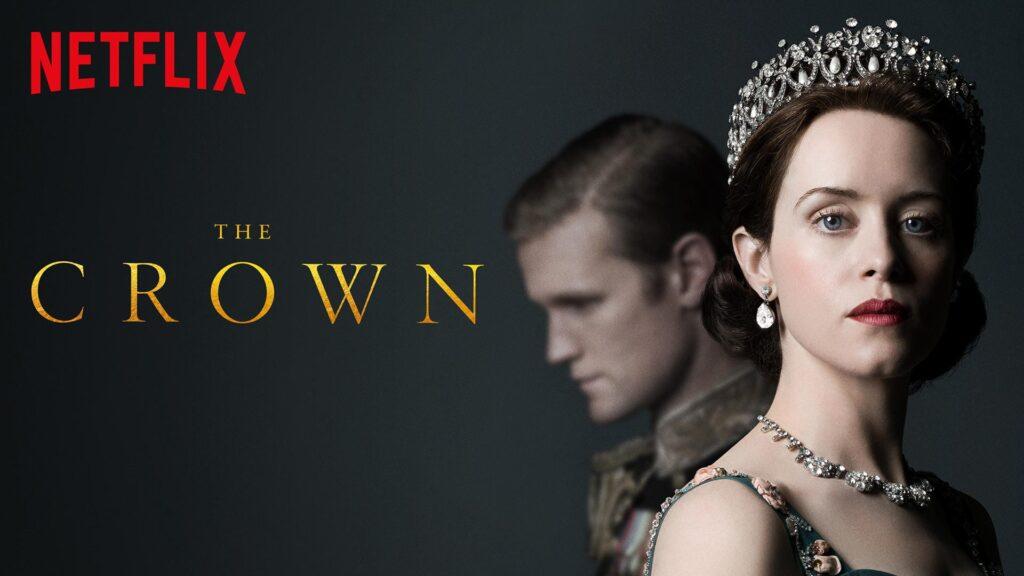"For better or worse, the crown has landed on my head. And I say we go." The queen looked fiercely at her husband Prince Philip. Together they walked toward the carriage, waving to the roaring crowd beside them.
During this awful quarantine, I decided to completely immerse myself into the Netflix series “The Crown.” Many people consider it too dull for teenagers, but I think the opposite.
The show has three seasons, each with 10 one-hour episodes. Just as the title implies, it is about the British royal family from the marriage of Queen Elizabeth II up to recent years. Even though this series spans for more than 70 years, the episodes select significant events that happened throughout the life of the queen.
Aside from these events, the series also focuses on the power and duty that comes with donning the crown, a part of the experience that is well-hidden from the eyes of the public. The queen, the other royal family members and people who work for the monarchy need to constantly balance their duties to lead the nation with their personal lives as parents, wives and husbands.
The episodes reveal the burdensome lives that these privileged people live as the duty of the crown always seems to outweigh the other aspects of their life.
I can imagine the challenge of filming and making this series, but the producers aptly met modern cinematic standards while keeping the show historically accurate. They styled the costumes, the characters’ way of speaking, the courtesies and the palace operations consistent with the norms of the 1900s, but the episodes do not feel crammed with factual information like documentaries — there are always bits of humor to lighten up the formality of the traditional culture of the monarchy.
Each episode is like a short movie; the characters burst with unique personalities no matter how small their roles are. It is very useful for me to learn history in this entertaining way, especially since I do not know much about the time period.
It is also fascinating to observe the links between historical events, some dating back more than 100 years ago. Great Britain was one of the world’s most powerful nations with a sense of supremacy over other countries rooted in its culture; therefore the adaptation of its royalty and the British government to a new era after WWII is an interesting aspect of this series.
One episode portrays former Prime Minister Anthony Eden declaring war on Egypt, a British colony from 1882 to 1914, in 1956 after fearing Egypt would seize independence and cut off Britain’s imports of petroleum. This demonstrates the British leader’s fear of losing his nation’s place in the world. Through sophisticated acting, the actors brought that despair, disappointment and fear to life, something textbooks and documentaries could not depict.
Not only can I observe the impact of one historical event to the other, but I am also able to connect some of the historical events to those happening currently in the world.
For example, another episode focuses on the Great Smog of London in 1952 and how the Cabinet, led by Winston Churchill and the royal family, reacts to the incident. The smog kills more than 12,000 people in only five days, yet Churchill refuses to shut down the power plant in London that caused it in order to maintain the nation’s economy.
Tragedies like this exist today. Similar to the Great Smog of London, millions of people die from smog in China and India every year despite the presence of people with the power to make changes. Like Churchill, they are often reluctant to do so for economic purposes.
Aside from all the significant events, I am also amazed by how the series portrays the royal family’s gossip. They demonstrate a sensitive part of the Royal Family, which reveals similarities to ordinary families navigating love, fear and anger. The series, unlike any documentary, shows the most ordinary side of the monarchy by capturing the ups and downs of their daily lives and each member’s growth.
For example, in Season One, the relationship between Princess Margeret and Peter Townsend, an Air Force Officer and equerry to King George VI and Queen Elizabeth II, is astonishing as it was depicted from so many different perspectives: that of individual family members like the queen, the Duke of Windsor and the queen’s mother, as well as those of the church, the press and the public.
Despite all of the technical strengths of the show, the best part is that I can persuade my parents to let me watch one hour of Netflix every day.
They believe that I watch this series for “educational purposes,” and although this is not true, “The Crown” is always better than the Chinese reality TV shows that I would have to watch otherwise.
“The Crown” is a gripping, hidden gem of Netflix, and I would definitely recommend it to anyone who wants to watch a new series that is made with its own bold style: powerful, grandiose and classic.


























